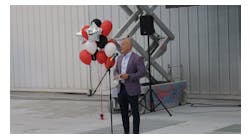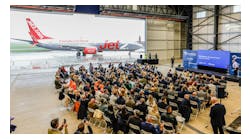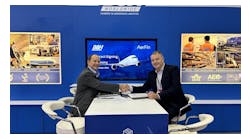FAA Launches New Rule to Curb Unsafe Aircraft Maintenance Outsourcing Practices
WASHINGTON, DC—Transportation Trades Department, AFL-CIO (TTD) President Edward Wytkind issues this statement regarding the FAA’s Advanced Notice of Proposed Rulemaking (ANPRM) on drug and alcohol testing at aircraft maintenance facilities outside the U.S.:
“Federal aviation regulators took an important step yesterday in an effort to ensure that foreign aircraft repair stations that work on U.S. aircraft can no longer evade drug and alcohol testing requirements.
“The FAA’s announcement that it will consider extending drug and alcohol testing to maintenance providers located outside the U.S. is in direct response to a congressional mandate passed in 2012 and one that was supported by transportation labor as a long overdue safety reform. While we are disappointed that the FAA is now over a year late in issuing a formal repair station proposal as required by Congress, we hope the ANPRM process will move forward quickly and that this safety loophole will be closed as intended by lawmakers.
“Today’s action also brings us closer to federal rules that level the playing field for U.S. airline mechanics. This generation of skilled mechanics has lived through an epidemic of outsourcing inspired by a government sanctioned feeding frenzy that today has almost 70 percent of aircraft maintenance outsourced, with one-third of it sent overseas.
“We are especially pleased that FAA Administrator Michael Huerta has acted in light of a weak rulemaking issued in January by the Transportation Security Administration on foreign repair station security. Inexplicably, the final TSA rule buckled under pressure from special interests and even rolled back limited security requirements embodied in the TSA’s initial proposal.
“The flying public and airline crews deserve nothing but the most rigorous safety, security and inspection standards of repair work on U.S. aircraft that is performed overseas. We urge the FAA to expedite the drug and alcohol testing rule and reject the predictable tactics by those who will try to weaken or bury this most basic safety requirement.”


